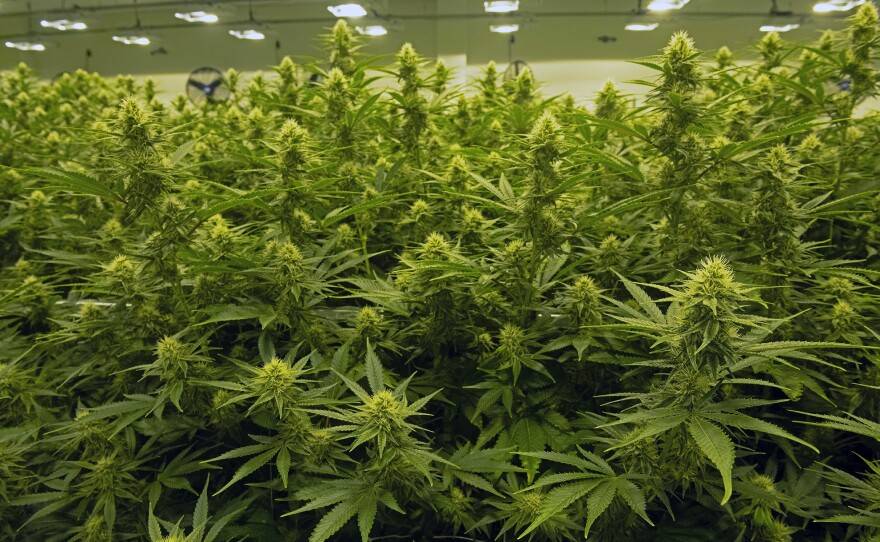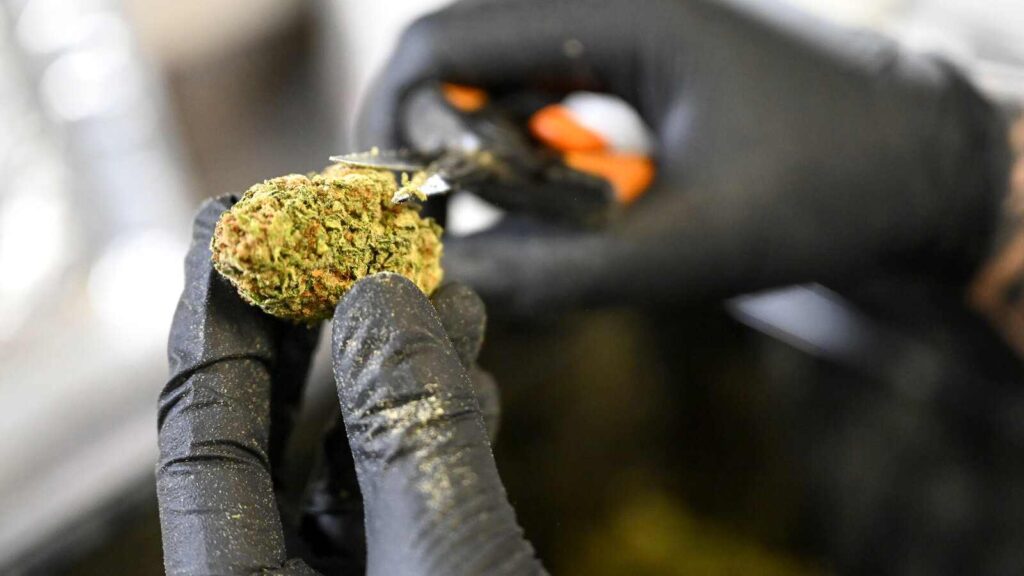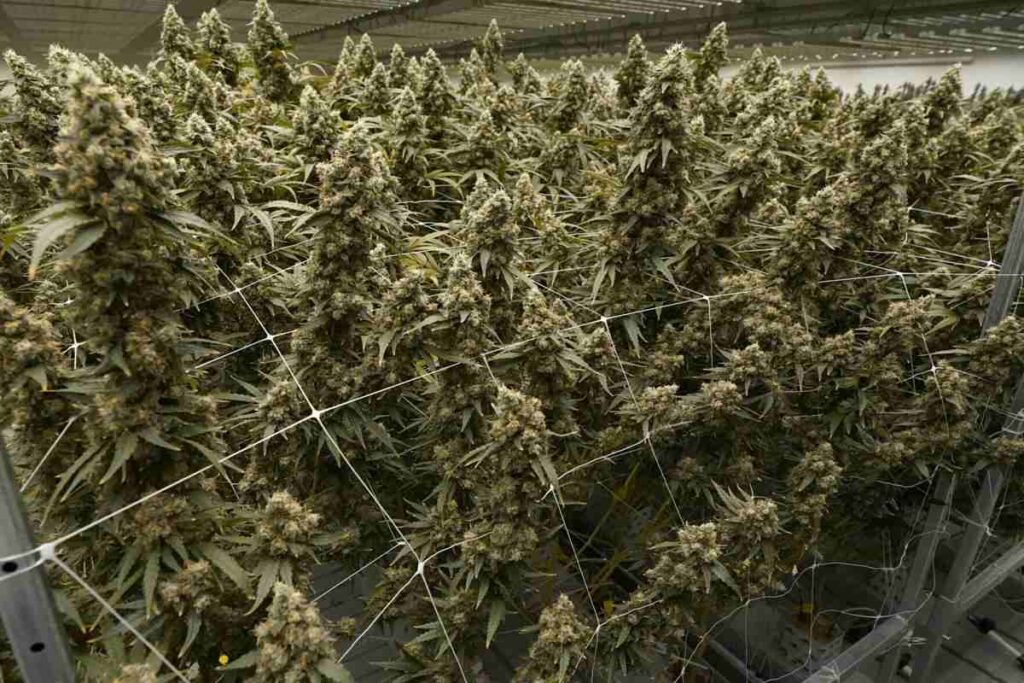When it comes to the Biden administration, it’s wise to expect the unexpected, as President Joe Biden has a penchant for shaking things up. Recently, the Biden administration has advanced its efforts to reclassify marijuana, recognizing its medicinal benefits and aiming to reduce its perceived risk. Given the medicinal advantages, it seems the move is rather significant.
The U.S. Department of Justice (DOJ) has proposed reclassifying marijuana as a Schedule III controlled substance, aligning it with medications like Tylenol with codeine and Ketamine.
Xochiti Hinojosa, the DOJ’s public affairs director, stated that Attorney General Merrick Garland circulated this proposal. As Congress prescribes in the Controlled Substances Act, a formal rulemaking process will begin after it is published in the Federal Register.
Bipartisan Support for Marijuana Rescheduling
Rescheduling marijuana is not a child’s play. It’s a comprehensive and formal process that could take several months to complete. However, it holds significant potential to impact cannabis-related research and the larger marijuana industry.

ALSO READ: Automaker Issues “Do Not Drive” Warning, Recalls Vehicles
Initially reported by the Associated Press, the recommendation for reclassification has gained bipartisan support. Republican Representative, Nancy Mace of South Carolina, celebrated the news on X. There, she highlighted its benefits for tax reductions, business growth, and research improvement.
Similarly, Democrat Representative Earl Blumenauer of Oregon endorsed the move, calling it a crucial step toward ending the failed war on drugs.
What Is the Medical Use of Marijuana?
For over half a century, marijuana has been a Schedule I substance alongside heavily regulated drugs like heroin, salts, bath, and ecstasy. As you may know, these drugs are strictly controlled due to their perceived lack of medical use and high abuse potential.
However, a thorough review by the US Health and Human Services Department and the FDA, prompted by the president, has led to the reclassification. In 2022, President Biden advocated for reclassifying marijuana to Schedule III, a recommendation long accepted by the Justice Department.
ALSO READ: Pennsylvania Man Points Gun at Pastor During Sermon, Caught on Video
What Are the Criteria for Rescheduling Marijuana?
Last fall, the FDA’s Controlled Substance recommended rescheduling marijuana based on three primary criteria. These criteria include lower misuse potential compared to Schedule I and II substances, recognized medical use in treatment in the US, and a low to moderate risk of physical dependence among users.
The National Institute of Drug Abuse supported this recommendation, noting that marijuana, despite its widespread non-medical use, does not cause severe outcomes like heroin, cocaine, and more. This observation is particularly significant, given the widespread availability of products with high levels of Delta 9 tetrahydrocannabinol (THC), the primary active compound in cannabis.
Since the first adult-use cannabis sale in Colorado in 2014, the cannabis industry has grown into a multi-billion dollar market, attracting global interest from sectors like agriculture, alcohol, tobacco, and pharmaceuticals.
Additionally, how the public views cannabis has evolved over the years. Currently, 24 states, two territories, and Washington, D.C., support cannabis for adult recreational use. Additionally, 38 states allow medical use of cannabis products, according to the National Conference of State Legislatures.
MJBiz, a cannabis industry trade publication, projects that state-licensed cannabis dispensaries and retail shops will likely generate $32.1 billion in sales this year.
Is Marijuana Federally Legal?
Public support for cannabis legalization is at an all-time high, with a record number of Americans favoring it, according to a Gallup poll from November. This growing approval has led U.S. lawmakers to propose various cannabis-related bills, including removing marijuana completely from the Controlled Substances Act while maintaining state-regulated markets.

Rescheduling marijuana from Schedule I could significantly impact research, reduce severe criminal penalties, and allow cannabis businesses to operate more freely within the banking system.
Moreover, it would exempt these businesses from a 40-year-old tax code. However, the Congressional Research Service (CRS) noted in a brief on January 16 that rescheduling alone can not resolve the conflict between federal and state laws.
Hence, marijuana production, transportation, and possession remain illegal under federal law. Moreover, regardless of state legality, it could still be subject to enforcement and prosecution.
You Might Also Like:
Automaker Issues “Do Not Drive” Warning, Recalls Vehicles
Elon Musk Urges Warren Buffett to Invest in Tesla Shares
“Bachelor” Alum Reveals Cornfields Dispute Caused Gerry Turner and Theresa Nist’s Divorce
Charlamagne Tha God’s Explosive Comment on Megan Thee Stallion Sends Internet Into Frenzy
Critics Slam Justin Trudeau, Say His Liberals Destroyed Canadian Prosperity
